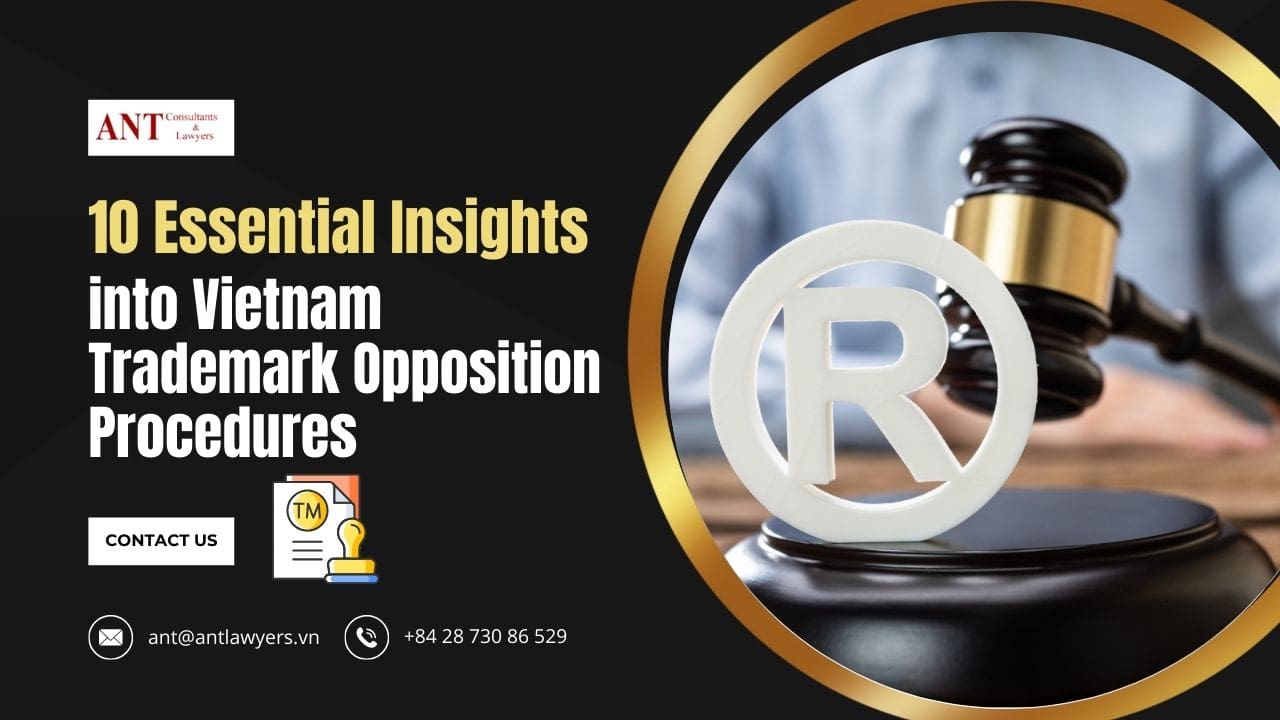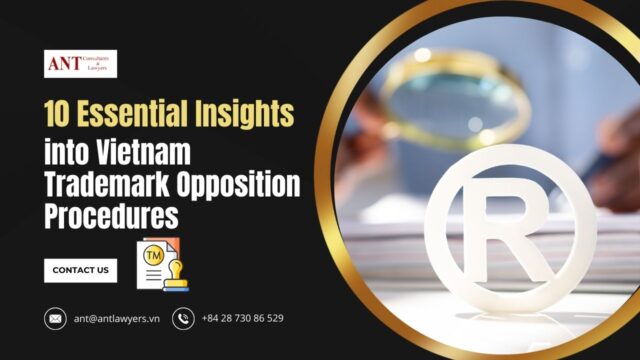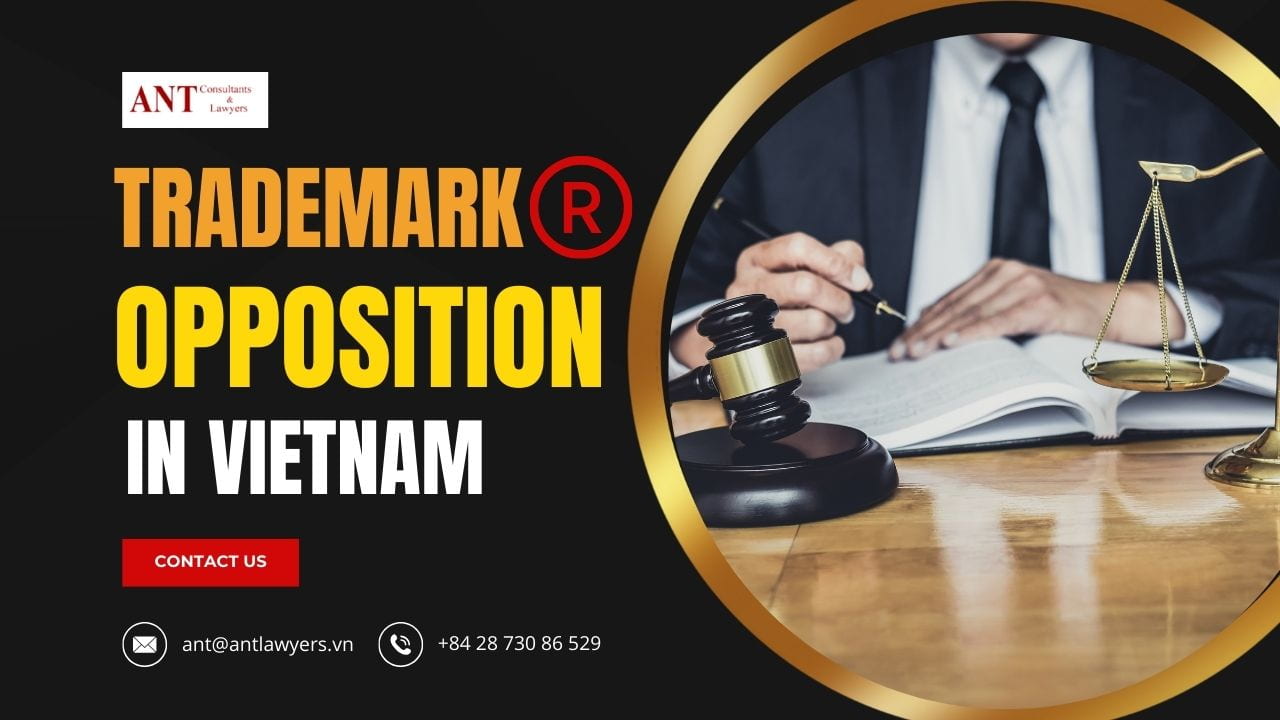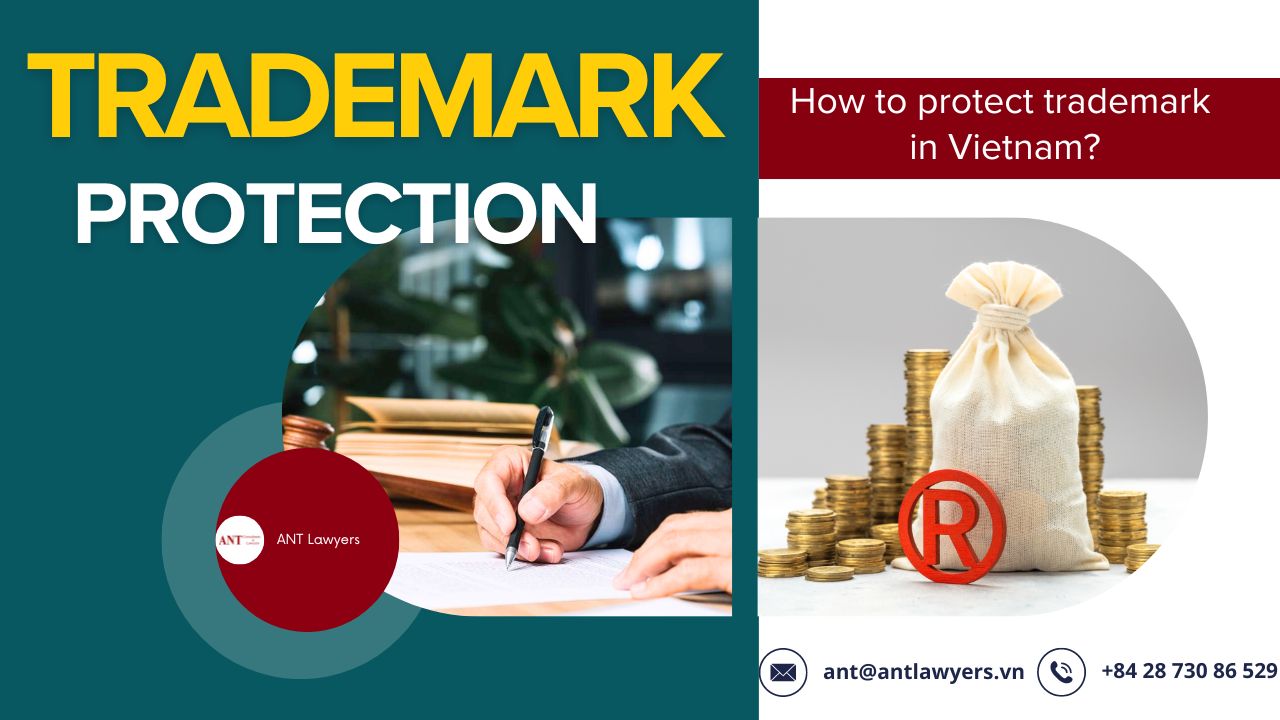10 Essential Insights into Vietnam Trademark Opposition Procedures for Brand Protection


Vietnam Trademark Opposition Procedures
In Vietnam’s rapidly evolving market, protecting your brand’s identity is more crucial than ever. The Vietnam trademark opposition procedures serve as a vital legal mechanism for preventing unauthorized trademark registrations that could harm your business. With the shortened opposition timeframe under Decree 65/2023/ND-CP, businesses must be more proactive in monitoring and challenging conflicting trademarks.


This article provides a brief guide to Vietnam trademark opposition procedures. Whether you are a business owner, an IP attorney, or a startup looking to safeguard your brand, this guide will help you navigate the trademark opposition landscape effectively.
What is Trademark Opposition in Vietnam?
Trademark opposition is a legal procedure that allows a third party to challenge a pending trademark application before it is officially registered. This process ensures that conflicting trademarks do not enter the market, reducing the risk of brand dilution and consumer confusion.
Unlike trademark cancellation or invalidation, which occur after a trademark is registered, opposition happens before the official grant of the trademark. This proactive approach helps businesses prevent costly legal disputes and brand damage in the future.
Legal Basis for Trademark Opposition:
Intellectual Property Law which grants third parties the right to oppose trademarks before registration.
Decree 65/2023/ND-CP which provides detailed procedures for filing an opposition with the National Office of Intellectual Property (NOIP).
Why is Trademark Opposition Important?
Failing to act during the opposition window can lead to severe legal and financial consequences. Here’s why trademark opposition matters:
1.Protecting Brand Identity
Trademark opposition helps businesses prevent competitors from using names, logos, or symbols that closely resemble their own, safeguarding brand distinctiveness.
2.Avoiding Market Confusion
Similar trademarks create confusion among consumers, affecting brand loyalty and trust. By opposing conflicting trademarks early, businesses ensure that customers can easily recognize and trust their products.
3.Preventing Bad Faith Registrations
Some entities register trademarks with dishonest intent, hoping to either:
-Sell the trademark to the rightful brand owner.
-Profit from an established brand’s reputation.
-Block a competitor’s market entry.
Vietnam’s updated IP laws allow businesses to oppose trademarks on the basis of bad faith registration, preventing unfair competition.
4.Cost-Effective Legal Strategy:
Opposing a trademark at the application stage is significantly cheaper than pursuing cancellation or invalidation after registration.
Who Can File a Trademark Opposition in Vietnam?
Eligible Parties
Under Vietnam trademark opposition procedures, the following parties can file an opposition:
-Businesses or individuals with prior trademark rights.
-Owners of well-known trademarks, as recognized under the IP Law.
-Competitors who believe that a new trademark would cause market confusion.
-Government bodies and consumer protection organizations if public interest is at stake.
When Can a Trademark Be Opposed?
One of the most significant changes under Decree 65/2023 is the reduction of the opposition period:
-Previous Deadline: 9 months from the date of publication in the IP Gazette.
-New Deadline: 5 months from publication.
This means businesses must act faster to monitor trademarks and file oppositions within the revised timeframe.
Where to File a Trademark Opposition in Vietnam?
Trademark opposition applications must be submitted to the National Office of Intellectual Property (NOIP):
How to File a Trademark Opposition?
Step-by-Step Process
Step 1: Conduct a Trademark Search:
Use NOIP’s public database to check whether a newly published trademark conflicts with your brand.
Step 2: Prepare an Opposition Application:
Your application must include:
-Information about the opposed trademark (application number, owner).
-Grounds for opposition (e.g., similarity, bad faith).
-Evidence (prior registrations, brand usage, market reputation).
-Legal arguments based on Vietnam’s IP Law.
Step 3: Submit the Opposition to NOIP:
Ensure submission is made within 5 months of publication to be considered valid.
Step 4: NOIP Review and Decision:
-NOIP examines the legal basis and evidence.
-The trademark applicant can respond with a counterargument.
-NOIP issues a decision either:
-Rejecting the opposed trademark (opposition successful).
-Approving the opposed trademark (opposition denied).
Step 5: Appeal if Necessary:
If opposition is denied, the challenger can file an appeal or administrative lawsuit.
Common Grounds for Trademark Opposition
Vietnam’s IP Law recognizes the following legal grounds for opposition:
-Identical or confusingly similar to an existing trademark.
-Bad faith registration (e.g., registering a famous mark to demand payment).
-Lack of distinctiveness (generic or descriptive terms).
-Violation of public policy or morality.
-Infringement on geographical indications.
Challenges in Vietnam Trademark Opposition Procedures
While the opposition process is essential for brand protection, some challenges exist:
-Shorter opposition deadline increases the burden on businesses.
-Burden of proof is on the opposing party, requiring strong evidence.
-NOIP decisions can be unpredictable, leading to lengthy legal disputes.
-International businesses may face difficulties navigating local IP laws.
Best Practices for a Successful Trademark Opposition
To maximize success, businesses should:
Monitor the IP Gazette regularly for conflicting marks.
File oppositions as early as possible within the 5-month window.
Gather strong evidence (prior use, brand reputation).
Work with IP attorneys experienced in Vietnam’s trademark laws.
Be prepared for counterarguments from the trademark applicant.
Stay Proactive in Protecting Your Brand
The Vietnam trademark opposition procedures play a crucial role in safeguarding brand identity and preventing unfair competition. With the shortened opposition period, businesses must act quickly and strategically.
By monitoring trademarks proactively, leveraging legal expertise, and using strong evidence, businesses can successfully oppose conflicting trademarks and maintain their market reputation.
About ANT Lawyers, a Law Firm in Vietnam
We help clients overcome cultural barriers and achieve their strategic and financial outcomes, while ensuring the best interest rate protection, risk mitigation and regulatory compliance. ANT lawyers has lawyers in Ho Chi Minh city, Hanoi, and Danang, and will help customers in doing business in Vietnam.




Trademark protection in Vietnam? How does it work?
Vietnam Trademark Law: Essential Guide for Foreign Companies
How to Easily Register Trademark in Vietnam: A Comprehensive Guide
Why Need Opposition Procedures of Trademark in Vietnam?
Trademark Search in Vietnam: What 5 Steps to Conduct?
Top 10 Reasons Why Vietnam Trademark Lawyers Are Essential for Protecting Your Business
7 Essential Insights on Intellectual Property Lawyers in Vietnam for Foreign Businesses
How ANT Lawyers Could Help Your Business?
You could learn more about ANT Lawyers IP Practice or contact our IP Lawyers in Vietnam for advice via email ant@antlawyers.vn or call our office at (+84) 24 730 86 529
Recent Posts
5 Powerful Reasons Why Vietnam Digital Asset Sandbox Is a Bold and Hopeful Move for Innovation
Change is fast. Rules are slow. But innovation can’t wait. As digital assets grow, so…
4 Critical Steps to Effectively Terminate The Employment Contracts with Confidence and Compassion
To terminate the employment contracts can be a complex and often sensitive process, especially when…
8 Insights from a Due Diligence Attorneys in Vietnam for Successful M&A Deals
Navigating the complex landscape of mergers and acquisitions (M&A) in Vietnam can be a daunting…
What 7 Crucial Truths About Arbitration in Vietnam Every Foreign Company Must Know Today?
Let's face the fact, as business owners or directors, would you normally look at dispute…
7 Crucial Legal Challenges Fintech Law Firms in Vietnam Can Help You Overcome for Business Success
Vietnam’s fintech sector is experiencing rapid growth, catching up with the trend of digital financial…
7 Reasons to Set Up a Subsidiary in Vietnam Now: A Powerful and Timely Move Amid Global Shifts
Introduction: The World Is Changing Fast, So Should Your Strategy When the world becomes unpredictable,…


